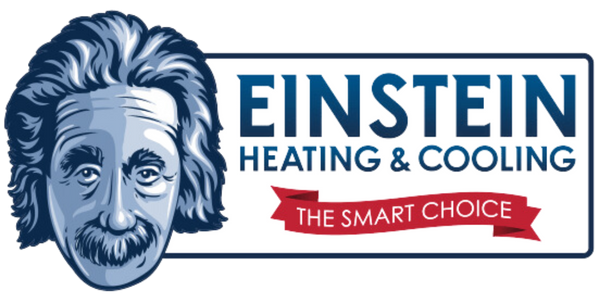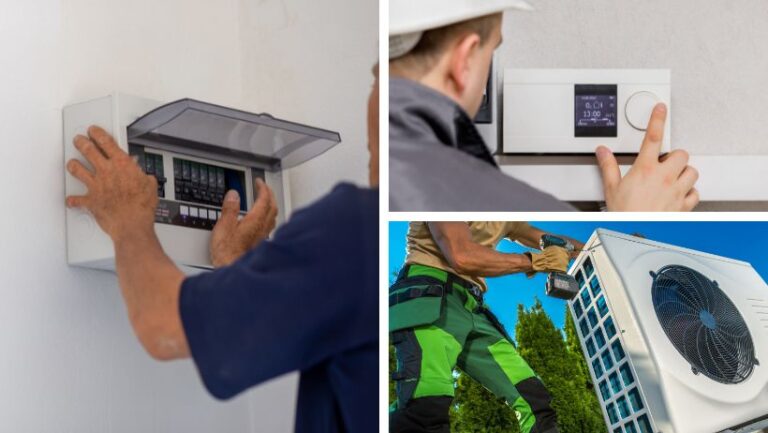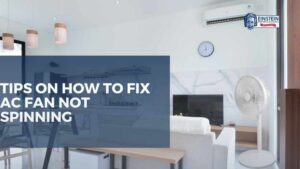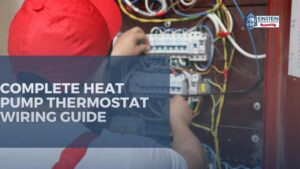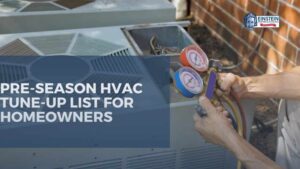If you reside in the vibrant city of Phoenix, Arizona, you understand the importance of a reliable heating, ventilation, and air conditioning (HVAC) system. With its desert climate characterized by scorching summers and mild winters, having the right HVAC system can significantly impact your comfort and energy bills. In this comprehensive guide, we will explore the key factors to consider when choosing the perfect HVAC system for your Phoenix home.
Factors to Consider When Selecting an HVAC System in Phoenix, Arizona
When it comes to selecting an HVAC system for your Phoenix home, several crucial factors must be taken into account to ensure optimal comfort and efficiency. Let’s delve into these factors one by one.
1. Climate and Weather Conditions
Phoenix’s climate is characterized by hot, arid summers and mild winters. This desert climate necessitates an HVAC system that can efficiently handle the demands of extreme heat.
- High Temperatures: Consider HVAC systems with robust cooling capabilities to combat Phoenix’s scorching summers.
- Energy Efficiency: Look for units with high SEER (Seasonal Energy Efficiency Ratio) ratings for cooling to minimize energy consumption.
2. Size of Your Home
The size of your home plays a crucial role in determining the HVAC system’s capacity needed to maintain comfortable indoor temperatures.
- Load Calculation: Conduct a professional load calculation to determine the right size HVAC system for your home, ensuring it neither underperforms nor wastes energy.
3. Energy Efficiency and Environmental Impact
With the growing focus on sustainability, it’s essential to consider the energy efficiency and environmental impact of your HVAC system.
- ENERGY STAR Certification: Choose HVAC systems with ENERGY STAR certification to reduce energy consumption and lower environmental impact.
- Solar HVAC: Consider solar-powered HVAC systems to harness the abundant sunlight in Phoenix and reduce electricity costs.
4. Ductwork and Ventilation
The efficiency of your HVAC system is heavily influenced by the quality and condition of your ductwork and ventilation system.
- Duct Inspection: Ensure your ductwork is properly insulated and sealed to prevent energy loss.
- Ventilation: Consider an HVAC system that includes proper ventilation to maintain indoor air quality.
5. Budget and Cost Considerations
Determining your budget and understanding the long-term cost implications of your HVAC system is crucial.
- Upfront Costs: Compare initial installation costs for different HVAC systems.
- Operating Costs: Factor in ongoing energy and maintenance costs to assess the system’s overall affordability.
6. Maintenance and Service
Regular maintenance and access to reliable service are vital for the longevity and performance of your HVAC system.
- Service Contracts: Check if your HVAC provider offers service contracts or maintenance packages.
- Local Service Providers: Ensure there are reputable HVAC service providers in Phoenix who can promptly address any issues.
7. Noise Levels
The noise generated by an HVAC system can significantly impact your comfort and the ambiance of your home.
- Quiet Operation: Choose HVAC units known for their quiet operation to maintain a peaceful indoor environment.
8. Available Incentives and Rebates
Incentives and rebates offered by local utilities or government programs can help offset the cost of installing a high-efficiency HVAC system.
- Research Incentives: Explore available incentives and rebates for energy-efficient HVAC systems in the Phoenix area.
9. System Compatibility
Ensure that the HVAC system you choose is compatible with your existing home setup and any potential future upgrades.
- Integration: If you plan to add smart home features, make sure your HVAC system can integrate with them seamlessly.
10. Warranty and Long-Term Support
Investigate the warranties offered by HVAC manufacturers and the support provided by your chosen HVAC service provider.
- Warranty Coverage: Understand the extent of warranty coverage for different components of the HVAC system.
- Service Response: Inquire about the responsiveness of the HVAC service provider in case of emergencies or breakdowns.
11. Energy Source
Consider the type of energy source that powers your HVAC system and its availability in Phoenix.
- Electricity: Most HVAC systems in Phoenix run on electricity, which is readily available and efficient.
- Solar Power: Explore the use of solar panels to power your HVAC system and reduce your reliance on the grid.
12. Aesthetics and Placement
The placement and appearance of your HVAC system can impact your home’s aesthetics.
- Placement: Determine the best location for your HVAC system, considering both functionality and aesthetics.
- Appearance: Choose HVAC units with an exterior design that complements your home’s style.
13. Reputation and Reviews
Research the reputation of HVAC manufacturers and service providers to ensure you choose a reliable option.
- Online Reviews: Read customer reviews and ratings to gauge the satisfaction of previous clients.
- Ask for Recommendations: Seek recommendations from friends, family, or neighbors who have recently installed HVAC systems.
14. Local Regulations and Codes
Ensure that your HVAC installation complies with local building codes and regulations in Phoenix.
- Permits: Determine if permits are required for HVAC installations and obtain them as needed.
- Compliance: Confirm that your HVAC system meets all local safety and environmental standards.
15. Future Expansion and Upgrades
Consider your long-term plans for home expansion or upgrades that may affect your HVAC system.
- Scalability: Choose a system that can be easily expanded or upgraded to accommodate future changes in your home.
16. Brand Reputation
The reputation of the HVAC system’s manufacturer can provide valuable insights into its quality and reliability.
- Well-Established Brands: Opt for HVAC systems from well-known and reputable manufacturers with a history of quality products.
17. Energy-Saving Features
Look for additional energy-saving features in your HVAC system to maximize efficiency.
- Programmable Thermostats: Invest in a programmable thermostat to optimize temperature control and reduce energy consumption.
18. Backup Heating and Cooling
In case of unexpected HVAC system failures, having a backup heating and cooling solution can be a lifesaver.
- Backup Generator: Consider installing a backup generator to maintain comfort during power outages.
19. Environmental Considerations
If you’re environmentally conscious, explore HVAC system options that prioritize eco-friendliness.
- Green Refrigerants: Check if the HVAC system uses environmentally friendly refrigerants with low global warming potential.
20. Local Expertise
Seek advice from HVAC professionals with expertise in the specific needs and conditions of Phoenix, Arizona.
- Local HVAC Experts: Consult with local HVAC experts who understand the unique climate and requirements of the area.
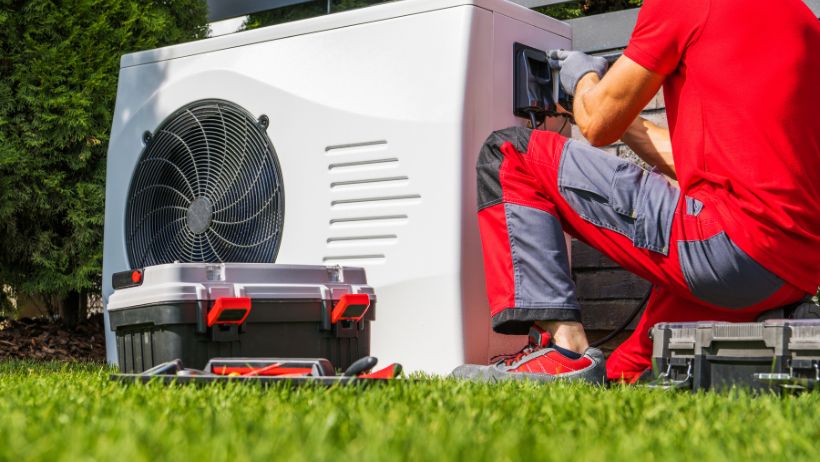
21. Zoning Options
Consider whether you need zoning capabilities in your HVAC system. HVAC zoning allows you to control different areas of your home independently, optimizing comfort and energy efficiency.
- Zoning Benefits: Zoning can help reduce energy waste by directing heating and cooling only where needed, making it a valuable feature for larger homes or multi-story buildings.
22. Air Quality Enhancements
Phoenix residents often prioritize clean indoor air quality. Look for HVAC systems that offer air filtration, purification, and humidity control features.
- Air Purification: Systems with built-in air purification technology can help remove allergens and pollutants, improving the overall health and comfort of your home.
23. Smart Home Integration
If you’re interested in a connected home, ensure your HVAC system can be integrated with smart home platforms and voice assistants.
- Smart Thermostats: Invest in a smart thermostat that allows remote control and scheduling through a smartphone app.
24. Ductless Mini-Split Systems
Ductless mini-split systems offer flexibility and energy efficiency, making them suitable for homes with specific heating and cooling needs.
- Room-Specific Control: Mini-split systems allow you to customize heating and cooling for individual rooms or zones, reducing energy consumption.
25. Maintenance Requirements
Different HVAC systems have varying maintenance needs. Consider how much time and effort you’re willing to invest in maintaining your system.
- Regular Maintenance: Determine whether you prefer low-maintenance options or are willing to commit to routine upkeep for optimal performance.
26. Longevity and Lifespan
The lifespan of HVAC systems varies depending on the type and quality of the system. Consider the long-term durability of your chosen system.
- Investment in Quality: High-quality systems may have a higher upfront cost but can offer longer lifespans, reducing the need for frequent replacements.
27. Energy Monitoring and Reporting
Some modern HVAC systems come with energy monitoring and reporting features that provide real-time data on energy consumption.
- Energy Tracking: Monitoring your energy usage can help you make informed decisions to further optimize your home’s energy efficiency.
28. Emergency Response
In Phoenix’s extreme temperatures, quick response to HVAC emergencies is essential. Ensure your chosen HVAC service provider offers 24/7 emergency support.
- Emergency Contact: Keep the contact information of your HVAC service provider readily accessible for any urgent needs.
29. Maintenance Plan
Consider signing up for a maintenance plan with your HVAC provider. Regular maintenance can extend the lifespan of your system and prevent costly breakdowns.
- Scheduled Check-Ups: Maintenance plans typically include scheduled inspections and tune-ups to keep your system running smoothly.
30. Energy Recovery Ventilators
Phoenix’s weather fluctuations make energy recovery ventilators (ERVs) valuable additions to HVAC systems. ERVs exchange stale indoor air with fresh outdoor air while recovering energy in the process.
- Indoor Air Quality: ERVs help maintain good indoor air quality, especially in tightly sealed homes.
Conclusion
By taking into account these comprehensive factors and additional considerations, you’ll be well-equipped to choose the ideal HVAC system for your Phoenix, Arizona home. Remember that the right HVAC system not only provides comfort but also contributes to energy efficiency and environmental responsibility. Collaborate with local HVAC experts like Einstein Heating and Cooling to ensure you make an informed decision tailored to your unique needs. With the perfect HVAC system in place, you can enjoy a comfortable, healthy, and energy-efficient home, no matter the season or weather conditions in the Valley of the Sun.
